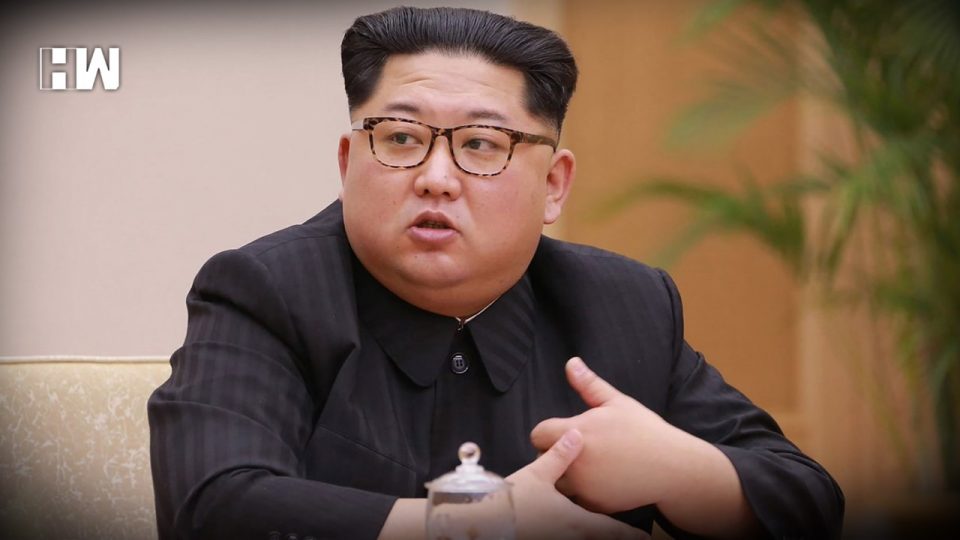Beijing | Kim Jong Un wrapped up today his third visit to China this year, declaring North Korea’s unstinting “friendship” with Beijing in a show of loyalty to his main ally following a landmark summit with US President Donald Trump.
The two-day visit was designed to reassure Beijing that Pyongyang will not neglect its interests as Trump and the young autocrat move into uncharted diplomatic terrain.
The performance is part of a delicate balancing act for Kim, who analysts say is seeking to play US and Chinese interests off each other while maintaining good relations with Beijing, his economic patron and diplomatic protector.
China and the US both hope to see the Korean peninsula free of nuclear weapons, but Beijing is concerned Washington and Pyongyang might move closer at its expense, a possibility that China sees as threatening to its economic and security interests in the region.
While China was not present at the June 12 summit in Singapore, it lent Kim a plane to travel to the city-state, a clear sign that it remains an influential force in the diplomatic shuffle.
The Cold War-era allies, which fought side-by-side against US-led UN forces and South Korea in the 1950-1953 Korean War, have sought to repair ties strained by Pyongyang’s nuclear tests and Beijing’s support of subsequent UN sanctions.
Kim chose Beijing for his first official foreign trip in March and met Xi again in May in the northeastern port city of Dalian.
Kim’s agenda for Wednesday was not made public, but an AFP journalist saw a motorcade believed to be Kim’s arriving at the airport, where his plane taxied onto the runway in preparation for take off.
During his meeting with Xi Tuesday, Kim thanked China for “positive and sincere support and good help for the successful” summit with Trump, according to North Korea’s official KCNA news agency.
The North Korean leader, who was greeted by a military honour guard and cheering children at the Great Hall of the People Tuesday, said he valued the “recently strengthened strategic cooperation” between the two countries.
“He expressed the determination and will to further develop the closer relations of friendship, unity and cooperation between the two parties and the two peoples of the DPRK and China,” KCNA said.
Kim also invoked the “prospect for the denuclearisation of the Korean Peninsula” following his meeting with Trump.
For his part, Xi told Kim that China “speaks highly” of his summit with Trump and he urged Washington and Pyongyang to implement their agreement struck in Singapore.
The Chinese leader vowed that Beijing would continue to play a “constructive role” in the nuclear diplomacy.
The official media of both countries did not say whether Kim and Xi discussed the prospect of easing UN sanctions that have crippled North Korea’s economy, though analysts said it could have been part of the agenda.
Shin Beom-chul, a senior fellow at the Seoul-based Asan Institute for Policy Studies, said Kim and Xi were likely seeking “common ground” following the Singapore summit.
For China, North Korea can serve as “an important card” as Beijing faces a potential trade war with the United States, Shin told AFP.
“For the North, it can also show to the world, especially the US, that Beijing has Pyongyang’s back if the North’s ties with the US sour in the future,” Shin said.
North Korean officials have also visited China recently to learn about its economic reforms — yet another sign of Pyongyang’s reliance on Beijing for its economic well-being.
Kim was believed to have visited an agriculture sciences centre on Wednesday, according to South Korea’s Yonhap news agency.
“We are happy to see that the DPRK made a major decision to shift the focus to economic construction, and the development of the DPRK’s socialist cause has entered a new stage in history,” Xi told Kim, according to China’s official Xinhua news agency.
China has backed United Nations sanctions against its ally but indicated last year that the UN Security Council could consider easing the punitive measures.
As an independent media platform, we do not take advertisements from governments and corporate houses. It is you, our readers, who have supported us on our journey to do honest and unbiased journalism. Please contribute, so that we can continue to do the same in future.

